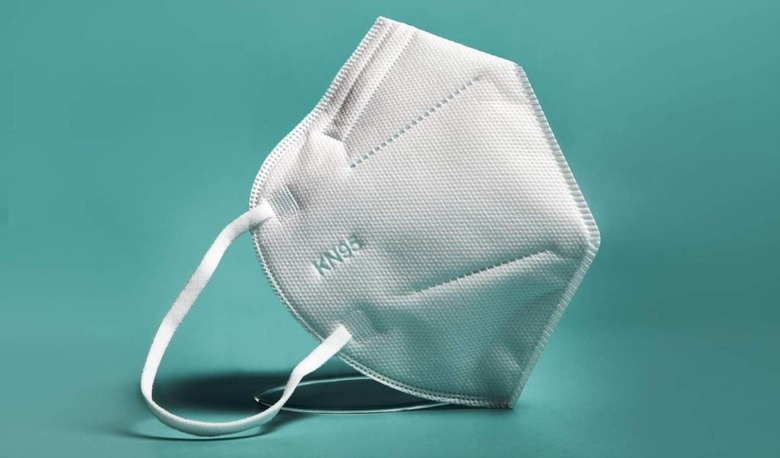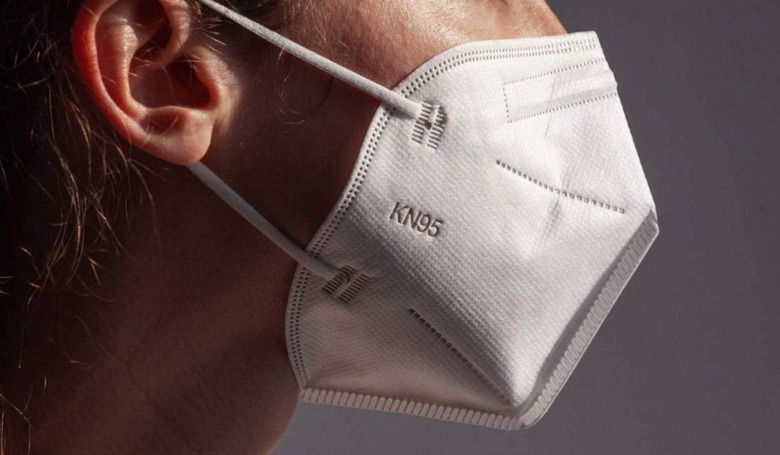CDC Updates Face Mask Guidance With Emphasis On N95 Respirators
The US Centers for Disease Control and Prevention (CDC) has published its latest mask guidance update, stating that the public can wear high-filtration respirators like N95 and KN95 masks. The agency didn't go so far as to advise the public to specifically seek out and use these respirators, though it did note that these products offer the greatest level of protection from the virus.
Latest CDC update
The CDC published its latest face mask guidance on January 14, 2022, stating that high-quality N95 and KN95 respirators offer the best protection against COVID-19, assuming they're made to NIOSH standards. The agency warns that using an unapproved, poorly made face mask may leave the wearer more vulnerable to the virus.
Among other things, the agency specifically addressed concerns about shortages, noting that while the public can wear these products, the N95 masks labeled as "surgical" quality should be left for healthcare workers. While an ordinary high-quality N95 will help protect the wearer against the virus, surgical N95 masks are made to protect against additional risks specific to healthcare settings, such as blood splatter.
Though the CDC didn't say that everyone should wear high-filtration respirators, it did come very close, noting in its update:
To protect yourself and others from COVID-19, CDC continues to recommend that you wear the most protective mask you can that fits well and that you will wear consistently.
The statement leaves room for those who find N95 masks too uncomfortable — as the agency has said in the past, any mask is better than no mask at all. Despite that, steps should be taken to ensure the right kind of mask is used.
The CDC notes that you should avoid masks that have built-in exhaust valves, as they allow unfiltered air to escape out of the respirator when someone exhales. As well, masks that have large gaps around the edges are less effective at filtering particles that may contain the virus.
While this update provides new information and strongly indicates everyone should upgrade to a higher-quality mask, it doesn't go as far as to directly advise a switch — and that has proven controversial. This update appears to be a concession to growing criticism over the agency's relative silence about face masks in light of omicron.
CDC Director Dr. Rochelle Walensky recently said during a White House briefing that the agency won't change its guidance, but she did acknowledge that, at minimum, the CDC needed to update the information it presents on face masks (via The Hill).
US has rocky history with masks
Face masks remain a contentious issue in the US, not the least of which is due to mixed messaging from the government in the earliest days of the pandemic. Back in February 2020, for example, the US surgeon general at the time, Dr. Jerome Adams, published a tweet that read (via USA Today), in part, "Seriously people- STOP BUYING MASKS!"
He went on to claim that face masks wouldn't help protect the "general public" from catching the SARS-CoV-2 virus, immediately contradicting his claim by pointing out that healthcare workers needed the masks to protect themselves from contracting the virus.
The message, which was published as other countries were already advising their populations to wear face masks, helped fuel the controversy around face masks and the general lack of trust many have in the government agencies tasked with addressing the pandemic. Some had accused the government of lying about the need for face masks in order to prevent shortages that would (and eventually did) impact hospitals.
The criticism has returned, this time amid a wave of Omicron cases. While certain properly made cloth face masks may have provided some degree of protection from the original strain of the virus, experts are coming forward with warnings that Omicron is a different beast altogether.
The highly transmissible variant of concern is spreading easily between people and experts say high-filtration masks are key to addressing this problem. Virginia Tech virus expert Linsey Marr told NPR, for example, that cloth masks "are not going to cut it with omicron."
Though the CDC still hasn't upgraded its guidance to explicitly advise the public wear N95 and KN95 masks, the news is getting around regardless. The increased awareness has led to increased demand, which is reflected in the quickly rising N95 face mask prices at retailers and online. A single high-quality N95 face mask that meets NIOSH standards can be difficult to find for less than $40 on Amazon right now, for example.


